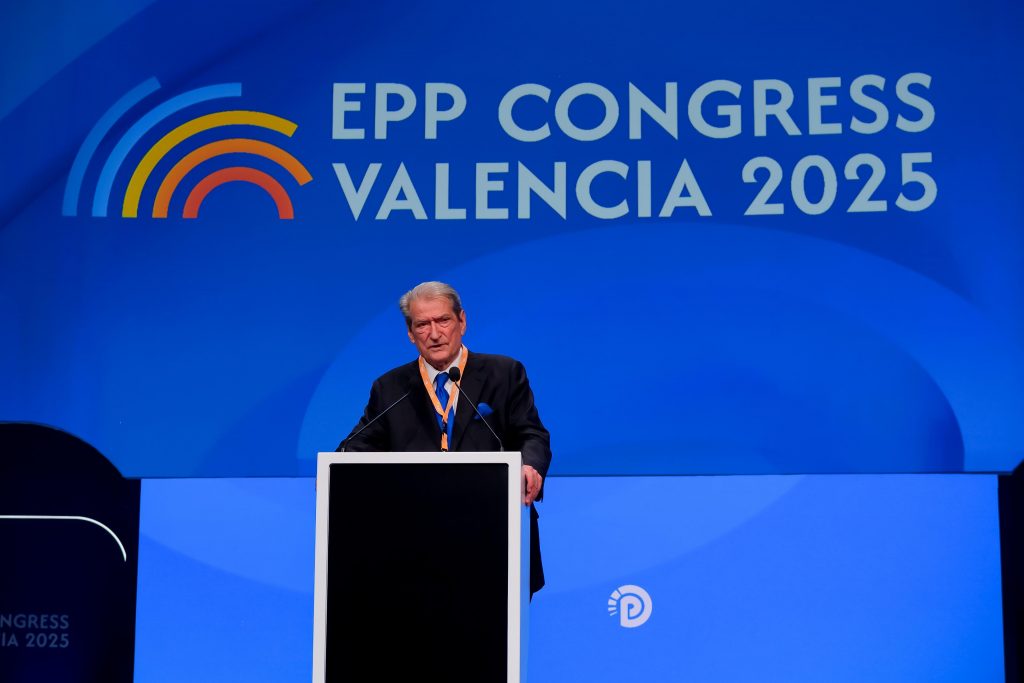Berisha attends EPP Congress in Spain, defends Beleri and alleges political persecution

Photo: Sali Berisha, leader of the Democratic Party, delivering his speech at the EPP Congress in Valencia.
Democratic Party leader Sali Berisha took to the stage at the European People’s Party (EPP) congress in Valencia this week, marking his first return to the European platform since stepping down as party leader in 2013. His appearance comes during the final stretch of Albania’s parliamentary election campaign — and amid a political storm over a $6 million U.S. lobbying contract signed by his party. Onstage, Berisha made headlines for vocally defending Fredi Beleri, the former ethnic Greek mayor of Himara and current MEP imprisoned for vote buying, framing him as a victim of political persecution.
Why this is important: Berisha’s vocal support for Beleri — a polarizing figure in Albania due to his criminal conviction and alleged ties to a 1994 anti-Albanian paramilitary attack — has sparked significant controversy. His defense of Beleri is widely seen as an appeal to political elements in Greece, aimed at breaking his international isolation. For many Albanians, however, this move appears deeply divisive and, is highly unlikely to improve his electoral fortunes.
Context: Addressing European conservative leaders, Berisha painted a bleak picture of Albania under the Socialist government, accusing Prime Minister Edi Rama of transforming the country into a “narco-dictatorship” and using the justice system to target the opposition. He singled out Beleri — the ethnic Greek politician — who currently serves as an MEP.
Berisha portrayed Beleri as a victim of political persecution, claiming the government stripped him of his mandate “because he would not give away ancestral land to the Rama family” — echoing a narrative promoted by the Greek government, but widely rejected in Albania. He likened the treatment of Beleri and other opposition figures to methods used by authoritarian regimes to silence dissent.
Yet Beleri’s history complicates this portrayal. In addition to his 2024 conviction for vote buying, he has long been linked to the 1994 “Peshkëpi Massacre,” when Greek nationalist paramilitaries attacked an Albanian border post, killing two soldiers. Beleri was never convicted, but was detained and investigated in connection with the attack.
His documented ties to Greek nationalist circles make Berisha’s alliance with him highly controversial — and for many Albanians, troubling. It has further fueled speculation that Berisha is relying on political support from Greece to counter his mounting isolation at home and abroad.
Campaign strategy: Berisha’s defense of Beleri fits within a broader Democratic Party effort to break the isolation of its leader at any cost. This effort includes the party’s now-infamous $6 million lobbying deal with a Washington firm connected to Republican insiders. Yet while these moves aim to project legitimacy abroad, they are not helping Berisha’s credibility at home, where his embrace of Greek nationalist figures especially risks alienating voters.


